Celebrating Women in Leadership
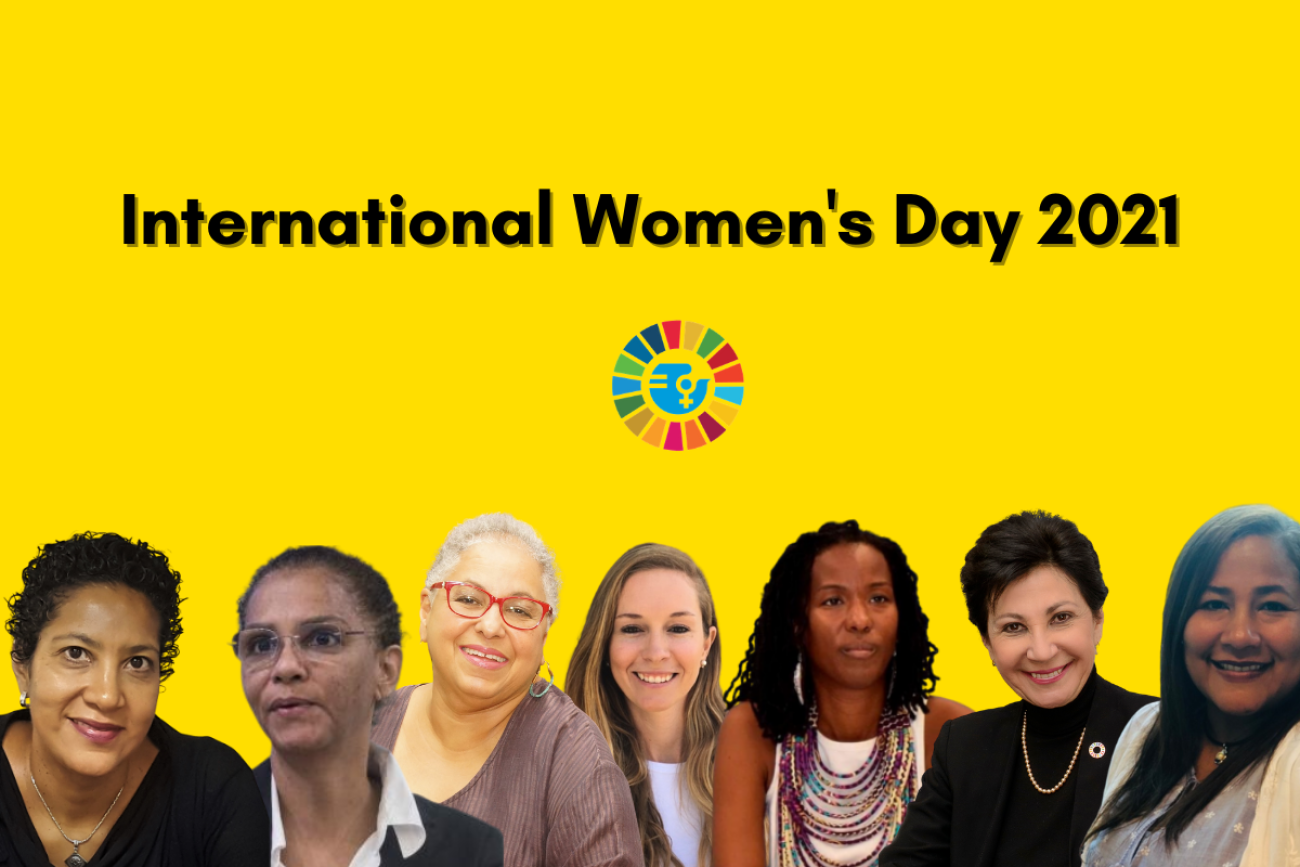
“Building a more inclusive and sustainable future”
By: Rhe-Ann Prescod and Carol A.Gaskin
International Women’s day is dedicated to the women and girls around the world who are working diligently to shape a more inclusive and sustainable future.
Under the theme, “Women in leadership: Achieving an equal future in COVID-19 World”, they are also being recognized for their effective and powerful leadership in various spheres in the midst of a global pandemic.
This past year women have been at the forefront of the battle against COVID-19, as Heads of States, health-care workers, caregivers in the home, heads of households and scientists along many other roles. Yet globally, women are paid 11 per cent less than their male counterparts and only 20 countries are led by women.
These types of disparities can derail or stall progress on achieving the SDGs and the 2030 Agenda.
Nonetheless, women leaders continue to make tremendous strides, whether doing so in boardrooms, on sports fields or in their homes. In honor of this day, we are pleased to shine the spotlight on those who lead within our Sub-regional team and hear their personal perspectives on leadership.
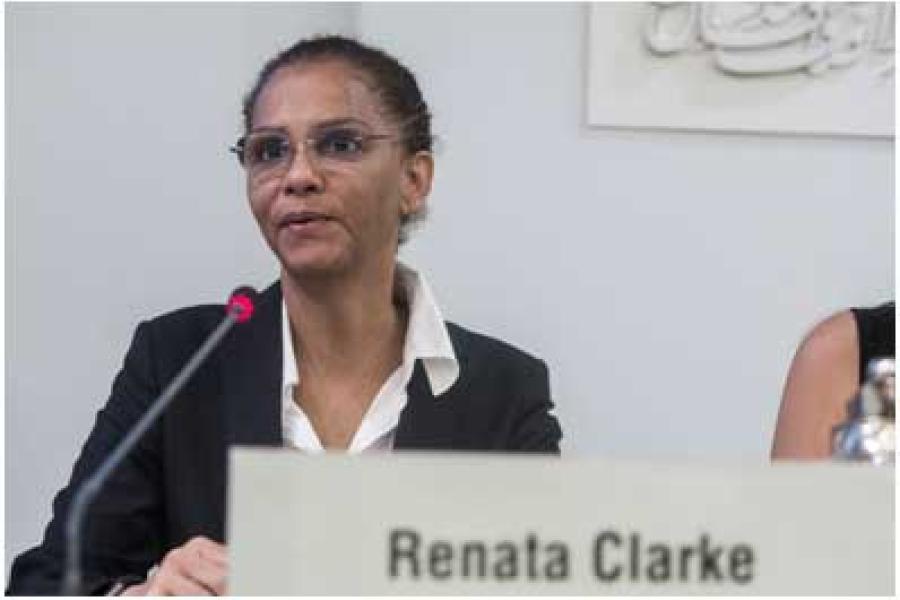
Dr. Renata Clarke
Sub-Regional Coordinator, FAO Caribbean
What role do you currently play within your agency?
As FAO Sub-Regional Coordinator for the Caribbean, I head the FAO Office that covers the 13 English-speaking countries of the Caribbean. I am charged with working with Governments directly, and through other FAO Country Offices, to design meaningful programmes of technical assistance that concretely support national goals in relation to agriculture, fisheries, and forestry.
Describe the work that the UN is currently undertaking, including joint initiatives, to achieve a more equal future for Caribbean women and girls. What impact do you think this work will have?
We carefully integrate gender considerations throughout our programmes so that women and girls benefit equitably. One project that we are currently implementing with UN Women is providing management and technical support to women farmers groups and women small-scale entrepreneurs to strengthen their business skills and enhance value-addition and linkages to markets. This project will reach over 2,500 farmers and “agri-preneurs” - at least 50% of whom will be women - across five participating countries - Antigua and Barbuda, Barbados, Dominica, Grenada, and Saint Lucia.
Do you think that it is important to have more female leaders within the international development arena, and within society at large?
What we need is inclusive and competent leadership in every sector, nationally and internationally. In international development, as in many other areas, the leadership is disproportionately male. Since no-one believes that talent is disproportionately male, this means that we are losing the opportunity to benefit from the skills and vision of talented and competent women. This is everyone’s loss.
In your estimation what more can be done to empower females within the Caribbean?
The common challenges facing women in agriculture include competing commitments, particularly as caregivers, access to land and access to credit. In the Caribbean, the contribution of women to the sector is often poorly understood due to a paucity of data. To fill this gap, FAO is helping countries in the region update their agricultural censuses and surveys to collect sex-disaggregated data. Better sex-disaggregated data will not only help to track progress in achieving gender equality goals, but also better understand how the social roles of men and women differ in agriculture, to inform sound policy decisions. However, I must emphasize that empowering females requires a whole-of-society approach.
Name one catalyst in your life that you believe would have placed you on a path to leadership.
I grew up in a household where a strong sense of social justice was instilled from a very early age and where the mantra was “first things first”. I would say that this generated a sense of agency and purpose rather than ‘putting me on a path to leadership’. I am ready to lead, when necessary, but I am also ready to follow when it makes sense.
If women were in charge of the world, do you think the world would be any different?
I would like to repeat what I said earlier: what we need is inclusive and competent leadership. Inclusiveness ensures an appreciation of all perspectives and competence enables those in charge to find the tools to respond appropriately to all situations.
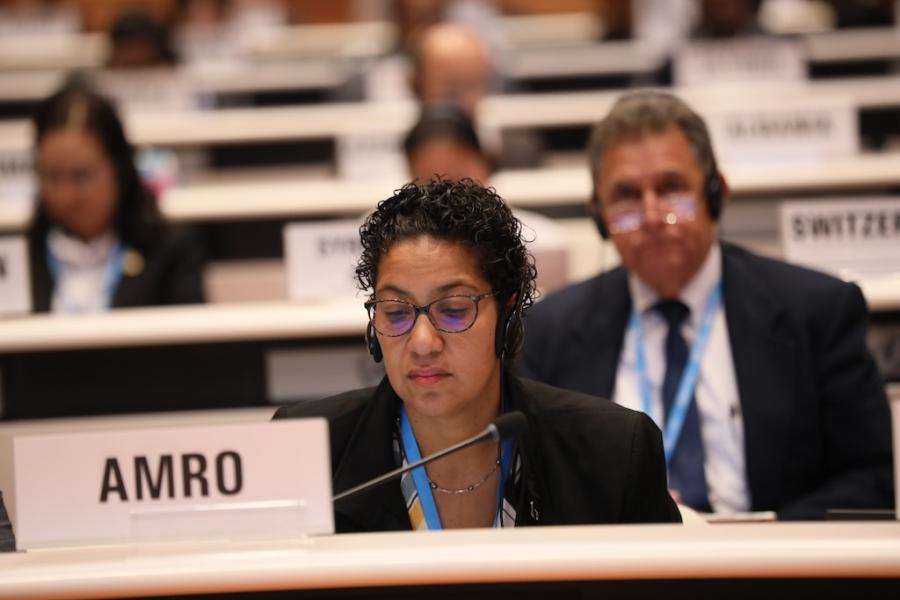
Jessie Schutt-Aine
Caribbean Subregional Program Coordinator, PAHO/WHO Caribbean
What role do you play within your agency?
The Subregional Office provides health-related technical support to CARICOM Member States and its institutions, including the Caribbean Public Health Agency (CARPHA) and the University of the West Indies.
Women and girl’s health and gender equality has always been a focus of my work in global public health. Before moving to PAHO, I was based at the WHO in Geneva where I managed an initiative ,under the UN Secretary General’s Global Strategy for Women’s and Children’s Health, in the office of the Assistant Director General for Family, Women’s and Children’s Health. I was also Gender Adviser at UNAIDS, supporting countries to recognize the importance of gender-based programming within the context of HIV.
Describe the work that the UN is currently undertaking, including joint initiatives, to achieve a more equal future for Caribbean women and girls. What impact do you think this work will have?
Gender is an important consideration in addressing vaccine hesitancy, climate change, NCDs and sexual and reproductive health. Women and men have unique needs and different levels of access to and control over resources. The only way we can address this is to recognize the inequity between the sexes. PAHO and its partners, are very aware that men and women have different health needs and face different barriers. Gender norms, roles and relations serve as both a protective and risk factor for health. As we seek to mainstream gender equity and cultural diversity, we strengthen capacities, develop methodologies and tools to integrate equity in health policies, plans, and programs in countries and at the regional level.
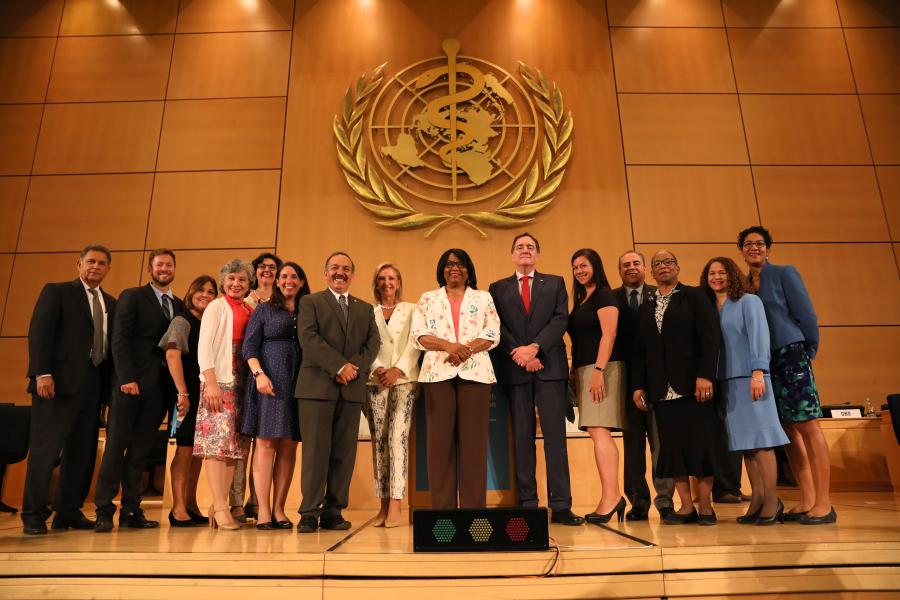
Jessie Schutt-Aine (First Right)
Do you think that it is important to have more female leaders within the international development arena, and within society at large?
Yes, Definitely! Over the past year, the world has been battered by a global pandemic that has infected tens of millions, cost more than 1.5 million lives, and devastated almost every nation’s economy. The evidence is showing that countries led by women have “systematically and significantly better” outcomes related to Covid-19. They instituted proactive and coordinated policy responses to protect the health of the populations. There is no doubt that a lot can be learnt from their leadership style. Compassion, truth, humility, integrity!
In your estimation what more can be done to empower females within the Caribbean?
Women in the Caribbean are resilient and are often the pillar of strength in the family. I also see this in the black community in the US. In many homes, women bear the responsibility of holding the family together, raising the children and are often the main breadwinners. These inequalities are exacerbated in the context of COVID-19 where women are taking the additional burden of online schooling for their children. So, it is important for women to remember that gender equity means fairness and justice in the distribution of benefits, power, resources, and responsibilities between women and men. It is a delicate balance that needs to be struck where perhaps men need to feel empowered and more comfortable in their masculinity to take on non-traditional roles. It takes a strong man to be comfortable with this. And there are several of those men who agree that there are roles and responsibilities, but these should be based on choice and not on gender.
Name one catalyst in your life that you believe would have placed you on a path to leadership.
My grandmother was definitely that catalyst, her energy, and legacy lives through all the women in my family. She raised five children in a rural area, alone, and through perseverance and love for her family, she saw all her children through to higher education and professional careers. She also taught me the value of education, hard work and integrity.
I am also thankful for a strong group of girlfriends, all strong women, and leaders in their own way. Over the years our paths have evolved differently, yet each serve as a role model. Our friendships, trust and comradery are huge catalysts and support as we each navigate the ups and downs of life.
If women were in charge of the world, do you think the world would be any different?
There has been a lot said about how women have done a better job leading during the COVID-19 crisis than men. According to the Harvard Business Review, an analysis of 360-degree assessments conducted between March and June 2020, women were rated by those who work with them as more effective. The gap between men and women in the pandemic is even larger than previously measured, possibly indicating that women tend to perform better in a crisis. In fact, women were rated more positively on 13 of the 19 competencies that comprise overall leadership effectiveness in the authors’ assessment. So, yes…. but truth be told, what we need are good leaders – female and male.
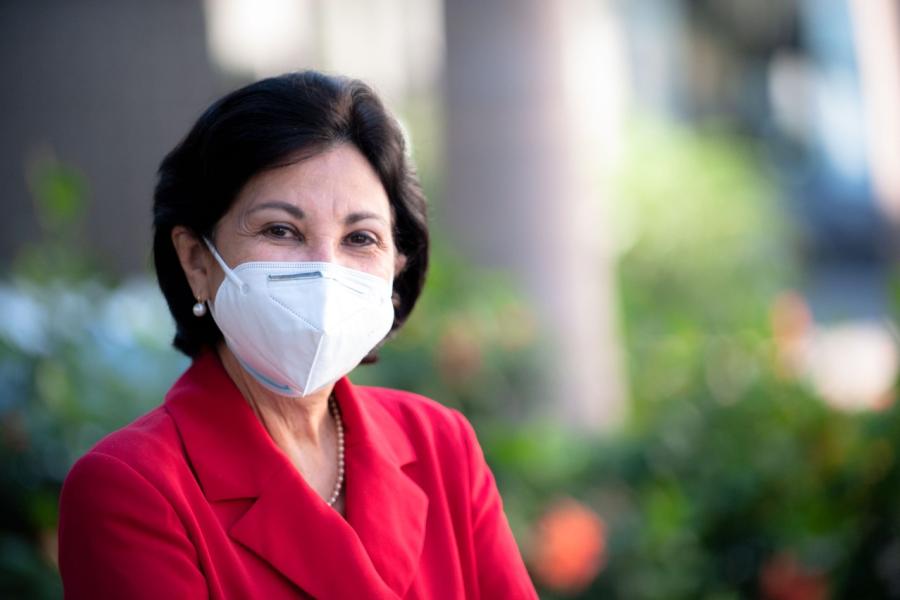
Saadia Sanchez-Vegas
Director and Representative of the UNESCO Cluster Office for the Caribbean
What role do you currently play within your agency?
I am responsible for serving twenty Caribbean Small Island Developing States in the pursuit of eradicating poverty, mitigating the effects of climate change, empowering youth in the region and building lasting peace – above all gender equality is a priority.
Describe the work that the UN is currently undertaking, including joint initiatives, to achieve a more equal future for Caribbean women and girls. What impact do you think this work will have?
UNESCO advocates for the greater inclusion of girls and women in STEM and science education programmes in the Caribbean Education system. It is crucial that education systems provide girls and young women with the support, capacities, and skills to fully participate in the Caribbean technology sector. Furthermore, their inclusion in these fields will also contribute to eradicate stereotypical biases that are found in these new technologies.
Do you think that it is important to have more female leaders within the international development arena, and within society at large?
The COVID-19 pandemic has shown that rapid technological changes are necessary to enable greater access to open data and services and the need for medical innovation. There is a global shortage of skilled workers in technological fields and scientific professions. To fill these gaps, most definitely, we need more women in these fields and in leadership roles.
In your estimation what more can be done to empower females within the Caribbean?
It is crucial that everyone has fair, inclusive and equal access to opportunities, resources and tools that enable them to reach their full potential - whether they are pursuing a career as a mechanical engineer, a doctor, an artist or a director of an international development organization.
Name one catalyst in your life that you believe would have placed you on a path to leadership.
I honour my mother, a strong, independent, wise woman who taught me from my early childhood years that you must believe in yourself beyond the stereotypical gender roles, to be resilient and fight -no matter what- for your rights and values.
If women were in charge of the world, do you think the world would be any different?
As I mentioned before, only an inclusive society that gives everyone, regardless of gender, the opportunity to achieve their goals and develop their full potential will help build sustainable and peaceful communities, leaving no one behind.
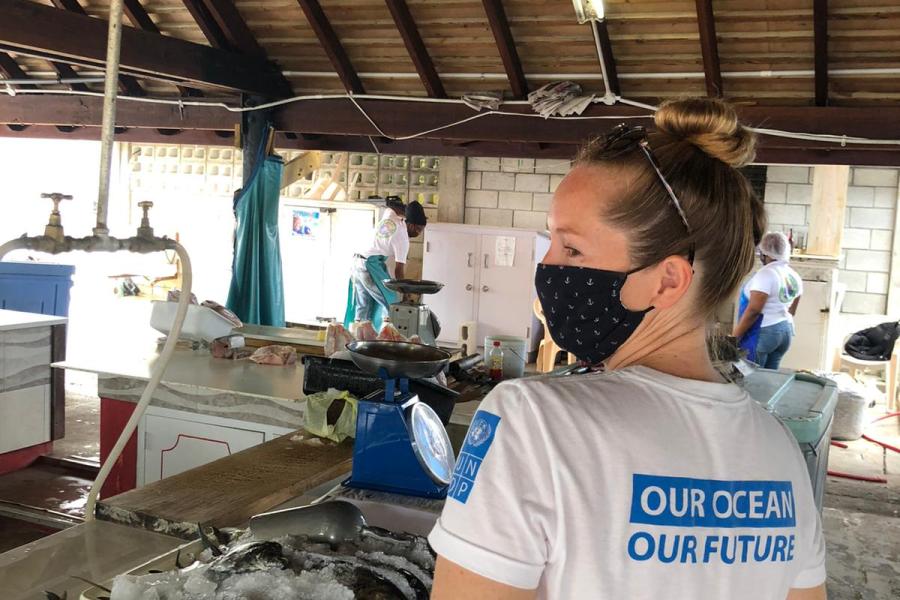
Nikola Simpson
Head of the Blue Economy Accelerator Lab, UNDP Barbados and Eastern Caribbean
What role do you currently play within your agency?
My role includes a diversity of functions and involves wearing many hats such as having the title of Head of Exploration and leading the Lab, which focuses on co – creating solutions for challenges within the blue economy. One of my passions is ensuring that all voices are heard including those of women and youth as we co – create a vision for the blue economy in the Eastern Caribbean.
Describe the work that the UN is currently undertaking, including joint initiatives, to achieve a more equal future for Caribbean women and girls. What impact do you think this work will have?
With regards to the Accelerator Lab, we continue to support women and girls working in the blue economy through technical assistance, partnership generation or capital investment to women innovators and women owned Micro, Small and Medium – Sized Enterprises (MSMEs). The Lab also hosts a coffee chat series with specific themes that focus on the role that women and girls play in the blue economy and how we can ensure that all voices are heard in crafting the vision for the blue economy in the Eastern Caribbean.
Do you think that it is important to have more female leaders within the international development arena, and within society at large?
The goal is to achieve equality – but currently, leadership positions in almost all fields are still largely dominated by men. By creating enabling environments, we can work to achieve gender equality at all levels of our society. It is important to be mindful of intrinsic biases and appreciate that men and women are faced with unique obstacles. To overcome these hurdles, we must consider the “gender lens” when examining policy and programmes and create supportive environments that encourage the growth of woman leaders both within the international development arena as well as within society at large. However, it does not stop here… we must collectively support and empower all women and girls to rise up and choosetochallenge!
In your estimation what more can be done to empower females within the Caribbean?
Within the UNDP Accelerator Lab for Barbados and the Eastern Caribbean, we are actively working to ensure that women and girls are included in the Blue Economy! It is important to show women and girls excelling in industries that were traditionally male dominated for example fisheries or technology. One of the innovators in our lab is a young woman, Kerri-Ann Bovell, who is creating a real-world solution in the form of bio plastics! UNDP projects take gender into consideration to ensure gender equality and inclusion for vulnerable groups. By actively creating environments that allow our women and girls to have a voice, we can go a long way in promoting the empowerment of women.
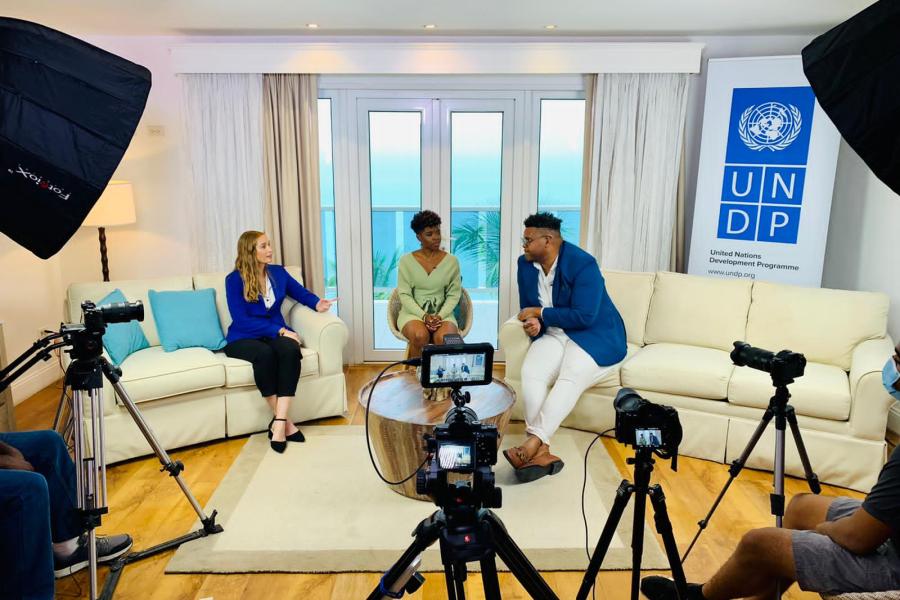
Nikola Simpson (Left)
Name one catalyst in your life that you believe would have placed you on a path to leadership.
From a very young age, I have been blessed to learn from my grandmothers, matriarchs of the families followed by my mother who not only encouraged me to pursue whatever I wished but showed me that women can do it.
If women were in charge of the world, do you think the world would be any different?
While we can only speculate on what that would look like, we can actively work on the question of how can we ensure that women are included now – that you can find a woman in every position and profession that have equal pay from entry level to senior management. It’s true that we have seen many notable female leaders across the globe and here in the Caribbean including Barbados’ first female prime minister, the Honourable Mia Amor Mottley. Progress is being made as women now hold some of the highest leadership positions in a space dominated by men, but there is much more to be done! So, we must all #choosetochallenge ourselves, our colleagues, our policy makers and our innovators to lift up, rise up, amplify our voices collectively, so that these will translate into action and change in order to achieve gender equality.
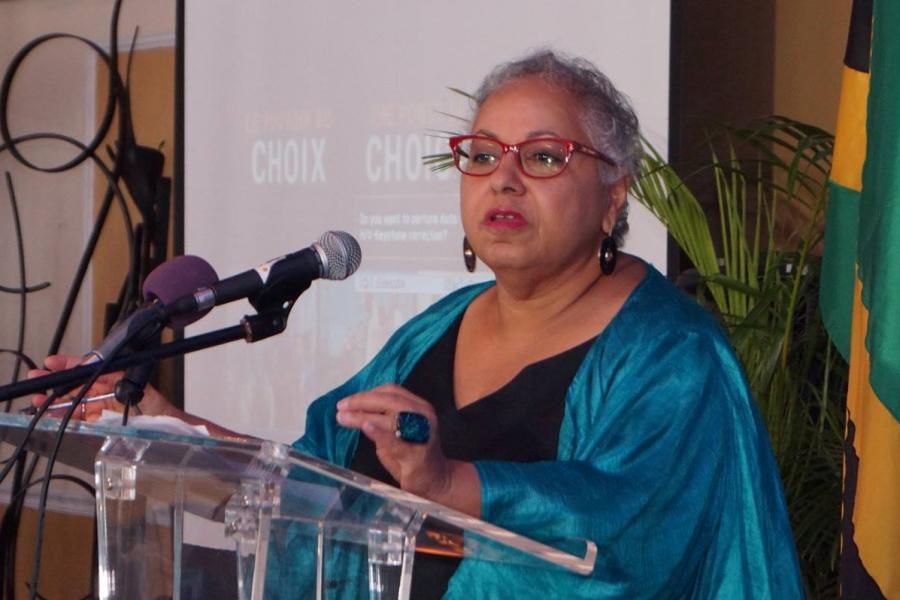
Alison Drayton
Head of UNFPA Sub-Regional Office for the English and Dutch-speaking Caribbean
What role do you currently play within your agency?
I provide strategic vision and leadership in determining the priorities and mandate of our work in the Caribbean. A key part of my role is to advocate with Governments and other key partners on the core issues of taking action to improve access to family planning services, end Gender Based Violence and ensure that the needs of the most vulnerable populations are addressed in relevant programmes and legislation.
Describe the work that the UN is currently undertaking, including joint initiatives, to achieve a more equal future for Caribbean women and girls. What impact do you think this work will have?
The UN has been consistently working alongside partners in the region for a more equitable future for women and girls. Let us look at the Spotlight Initiative as an example. Funded by the European Union, it’s one of the world’s largest targeted efforts to end violence against women and girls and is being coordinated through several UN agencies. A key intervention under the Initiative is enhancing coordinated services for GBV survivors, which will help to ensure that women receive the support they need in the most difficult times.
From a UNFPA perspective, our work includes:
- Ensuring access to quality Essential Services for Women and Girls subject to Violence. On February 26, 2021, the Essential Services Package was launched in Saint Lucia by the Ministry of Education, Innovation, Gender Relations and Sustainable Development of Saint Lucia, with support from UNFPA.
- Facilitating south-south cooperation between Caribbean countries to strengthen delivery of comprehensive sexuality education in the health and family life education curriculum.
- Supporting the continuation of sexual and reproductive health and gender-based violence services during COVID-19, including through telemedicine.
- Promoting youth leadership and participation on sexual and reproductive health and rights and GBV prevention and response.
Do you think that it is important to have more female leaders within the international development arena, and within society at large?
Yes, it is important to have more female leaders within the society in general. Inclusive and diverse leadership is important for sustained global development. The key is developing a society that eliminates structural inequalities across the board, including gender inequalities. As the UN we can be proud that quite a few senior positions in the organization in the region are filled by women, and by Caribbean women at that! Increased female participation at the higher levels of organizations helps to fosters gender mainstreaming in policy making.
In your estimation what more can be done to empower women within the Caribbean?
It is critical to raise our girls and young women to recognize their potential, give them opportunities to take full advantage of that potential and wholeheartedly celebrate that success. At the same time, we must foster a culture where boys and men view women’s growth and leadership, not as threatening, but as achievements to be celebrated, supported, and sustained.
Name one catalyst in your life that you believe would have placed you on a path to leadership.
My role as Strategic Advisor to the first Caribbean President of the UN General Assembly. It exposed me to the political and strategic considerations that ultimately determine the outcome of international negotiations. The tutelage received from the President was critical to my training and shaping. I learned to think analytically and how to apply that approach to every dimension of my job. Certainly, drive and ambition also played a role, as did opportunity and luck.
If women were in charge of the world, do you think the world would be any different?
The value of emotional intelligence and the consistent application of skills, diplomacy, and appropriate strategic thinking in interactions with colleagues and acquaintances cannot be overemphasised. It is also important to create an encouraging and supportive environment. I believe any leader (whether man or woman) who does that will be successful.
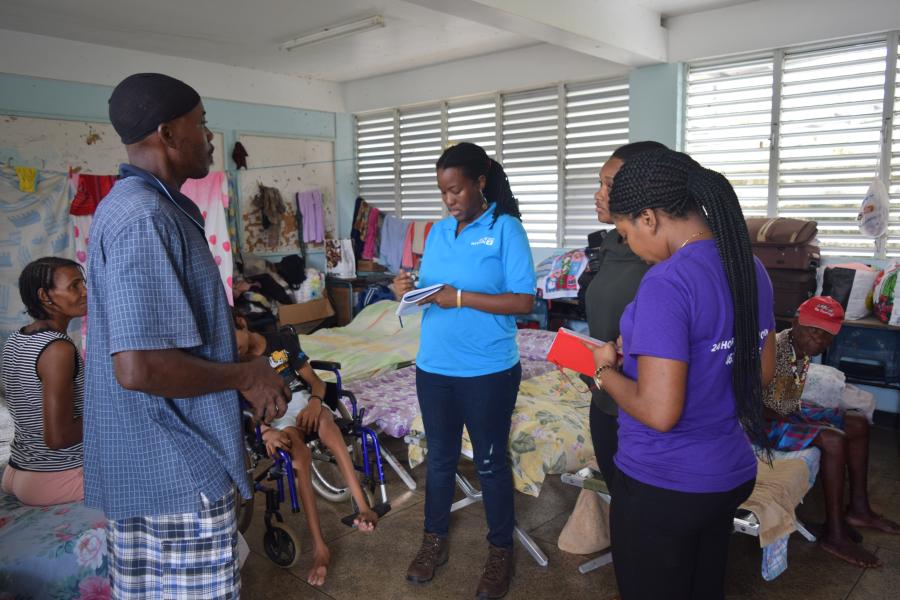
Tonni Brodber
Representative, UN Women Caribbean
What role do you currently play within your agency?
I am the Representative for UN Women Multi-Country Office- Caribbean which covers 25 countries. Our work is dedicated to gender equality and the empowerment of women and girls while accelerating progress on meeting their needs.
Describe the work that the UN is currently undertaking, including joint initiatives, to achieve a more equal future for Caribbean women and girls. What impact do you think this work will have?
That is the mandate of UN Women, from our work with women in agriculture to the work done to end violence against women and girls including the Foundations gender-based violence prevention programme for youth. Through the UN Joint SDG Fund project, we’ve been able to support gender responsive approach to social protection. This will allow for persons who need support to receive assistance from the state that meets their unique needs.
Do you think that it is important to have more female leaders within the international development arena, and within society at large?
Yes. The composition of people in Leadership should reflect the populations served. Women’s contribution to the Caribbean and the world demonstrates the importance of creating opportunities for women and groups that have been marginalized - and had their access to leadership blocked or their contributions minimized - to use their unique experiences navigating the world to inform their decisions as leaders. Women are not a homogenous group, it’s important that women from all walks of life contribute their full potential to solving the development problems the world faces.
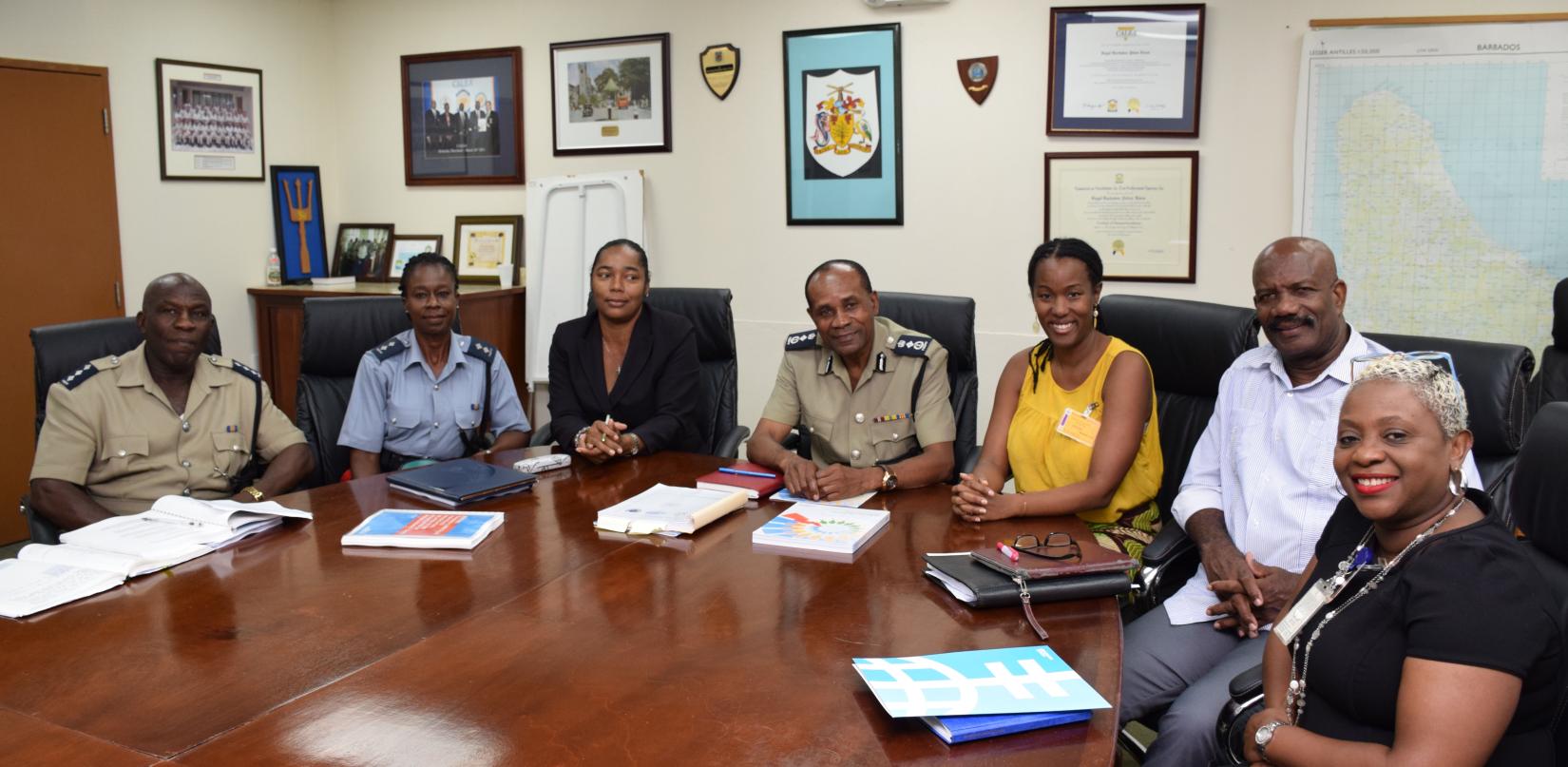
Tonni Brodber (Third from Right)
In your estimation what more can be done to empower women within the Caribbean?
Sustained and strategic action to End violence against women and girls and all forms of gender based violence. Support to temporary special measures to promote women in leadership. Creation of more opportunities for economic empowerment.
Name one catalyst in your life that you believe would have placed you on a path to leadership.
Women’s mentorship. I watched and learned from my mother, my grandmother, Alison Anderson McLean, Roberta Clarke and admired Dame Billie Miller and legends like Nanny of the Maroons and Sojourner Truth. The lesson of servant leadership and the importance of stepping up to contribute what you can because we all should leave any space we encounter, in this world, better than we found it.
If women were in charge of the world, do you think the world would be any different?
Rather, if inequality didn’t exist there would be more women leaders and indeed the world would be much different, benefitting from the potential that is being squashed by the impacts of inequality.
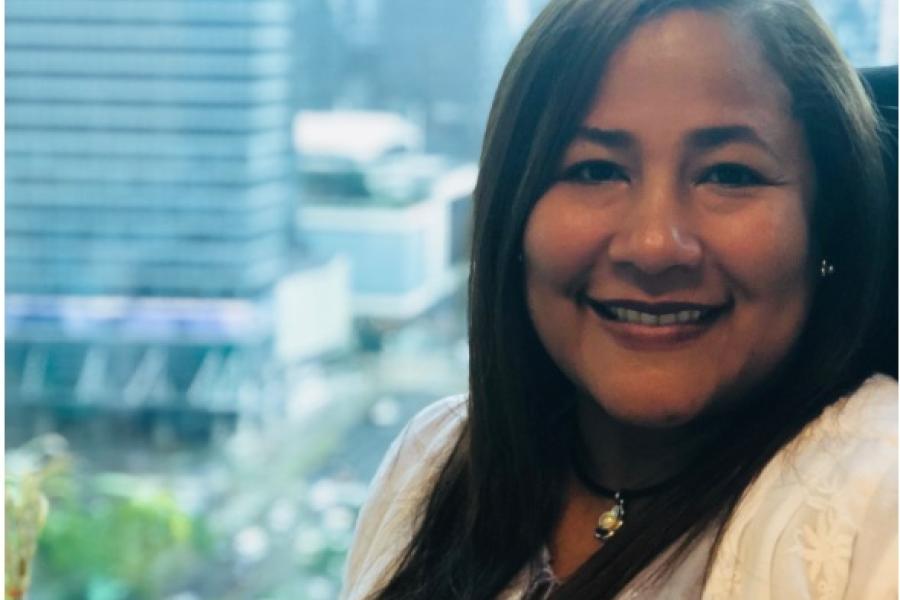
Vielka Alverez
Deputy Country Director, WFP, Caribbean
What role do you currently play within your agency?
As the Deputy Country Director, we serve approximately 22 territories, focusing on a wide variety of issues that include achieving gender parity in different areas. Our primary priority is achieving goal 2, zero hunger and goal 17, global partnership.
Describe the work that the UN is currently undertaking, including joint initiatives, to achieve a more equal future for Caribbean women and girls. What impact do you think this work will have?
WFP primary focus is working to ensure zero hunger for everyone as well as working towards overall collaboration and partnerships no matter, age, race, or gender. In our agency there has been a lot of work internally, seen in the promotion of women to roles of leadership, like me. Coming from Panama, access to these opportunities are rare, even though I would say equality exists. Being thrusted into such a new and senior leadership position within our agency has not only empowered me as a woman, but has empowered and ,by extension, inspired our Caribbean women to reach for their goals.
Do you think that it is important to have more female leaders within the international development arena, and within society at large?
I believe it’s important to not only have more female leaders but it’s important to just have “good leaders” . Not leaders based upon their gender , age, or race ,but only upon their “merit” and “attitude” . If that happens to be a woman, well that’s fantastic!
In your estimation what more can be done to empower women within the Caribbean?
I believe the best thing to empower more females within the Caribbean is simply “opportunity”, giving our young girls and women equal access to opportunity.
Name one catalyst in your life that you believe would have placed you on a path to leadership.
I attribute my current role in WFP to the many women who supported and encouraged me to even apply for this role as Deputy Country Director. I believe at that time I was quite comfortable in my position in budget and programming and I was not really looking for any change. It was their confidence in my own abilities (some of which I did not even recognize) that served as the catalyst that placed me on this path.
If women were in charge of the world, do you think the world would be any different?
I do believe that many things would be different if women were in charge of the world. I see women being able to have compassion and work together ,despite any differences, for the common good. We see in history that women are no stranger to leadership roles, with the most primary of those roles being “mother/nurturer”. The responsibility of raising/caring for a child, I would say, is a greater task than running a country. So, that makes me confident in a women’s ability to make meaningful and impactful differences in the world.
In his message to mark International Women’s Day, UN Resident Coordinator, Didier Trebucq, reminds us that “When women’s roles are diminished ALL of society suffers.”
And as we continue our fight against gender inequality, UN Women Caribbean is asking women all around the region to consider - “Why do you lead” or “Why do we need women in leadership”. Today until March 10th, join parliamentarians, academics and gender activists and let your voices be heard. Learn more here
Happy International Women’s Day!

















